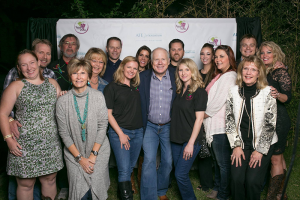 When Miranda Klassen discovered she was pregnant, she and her husband were ecstatic. They had always wanted children. The pregnancy was trouble-free and they expected that the delivery day would be the happiest day of their lives. However, Miranda would wake up two days after the near fatal delivery from a medically induced coma, to the amazement of the medical team assisting her. Fortunately, her son, Van, also survived.
When Miranda Klassen discovered she was pregnant, she and her husband were ecstatic. They had always wanted children. The pregnancy was trouble-free and they expected that the delivery day would be the happiest day of their lives. However, Miranda would wake up two days after the near fatal delivery from a medically induced coma, to the amazement of the medical team assisting her. Fortunately, her son, Van, also survived.
Fatal Condition that No One Talks About
Miranda had suffered an amniotic fluid embolism (AFE). The condition is not only unpreventable but also often fatal. It occurs when the amniotic fluid finds its way into the mother’s blood stream. This results in a reaction that is similar to that seen in allergies.
The first phase results in cardiorespiratory collapse. The lungs and heart stop working. The second phase involves hemorrhage through every orifice.
The condition is rare (it affects one of out of 40,000 births in the US and Canada). It is however one of the leading causes of maternal deaths in the US. And between 40% and 80% of mothers affected by AFE die. Also, as many as 65% of infants die while still in the womb. Many of those that survive suffer neurological damage that is often permanent, leaving them in a vegetative state.
A survivor’s determination
When Miranda woke up from her medically induced coma, she learned she was lucky to be alive. She had survived because her medical team recognized the symptoms early on. But no one could answer any of the questions she asked about her condition.
“I returned home and began to research on the condition,” says Miranda. “I was surprised to find that there was very little information and no foundation. “
“She told me it was shocking how little research and information there was about the condition,” says Byce, her husband. “There was no foundation that dealt with AFE. So she said ‘I’m going to start a one.’”
Miranda went to work contacting experts in the field to ask questions about AFE while Bryce returned to work as an intensive care unit nurse, in order to work with the team that had saved his wife’s life. Several months after the birth of her son, Miranda had the AFE Foundation up and running.
Finally some hope
The foundation works to support research and educate the public about AFE. The foundation also has the largest registry of AFE cases which is a vital part of unraveling the mystery behind the condition.
Miranda also provides a network through which survivors of AFE and families who have lost mothers or children as a result of the condition, can connect and support one another. “Offering support for families that have lost loved ones is the hardest part of what we do,” says Miranda. “But it’s the part that means the most to me.”
“All of the families we represent are the truest forms of heroes,” says Miranda. “We have walked alongside so many in their darkest moments and see the full picture of how devastating it is. I am happy to share my story as a voice for those affected by AFE, most especially those who are no longer here to tell theirs.”
